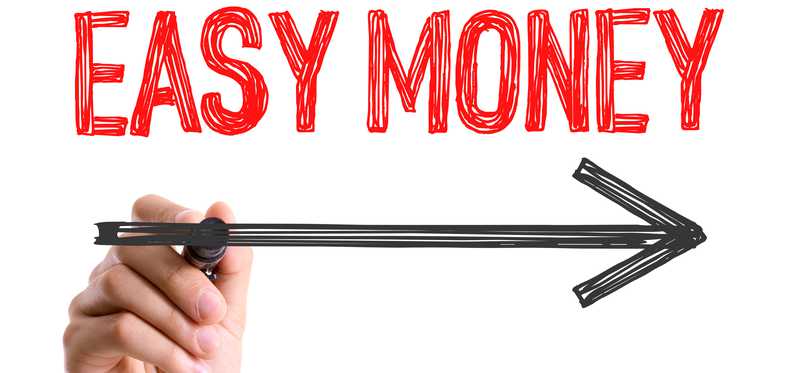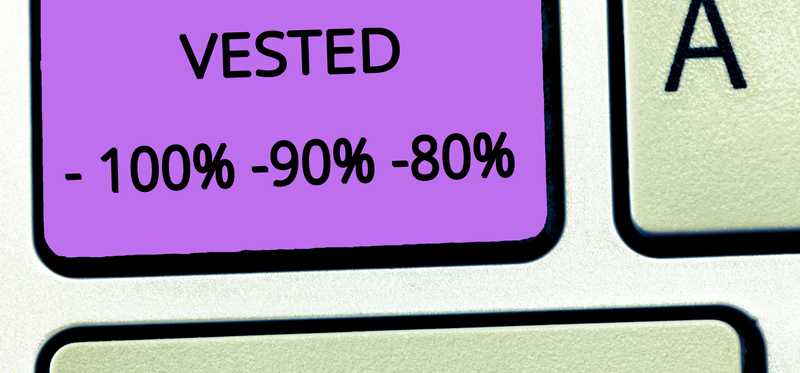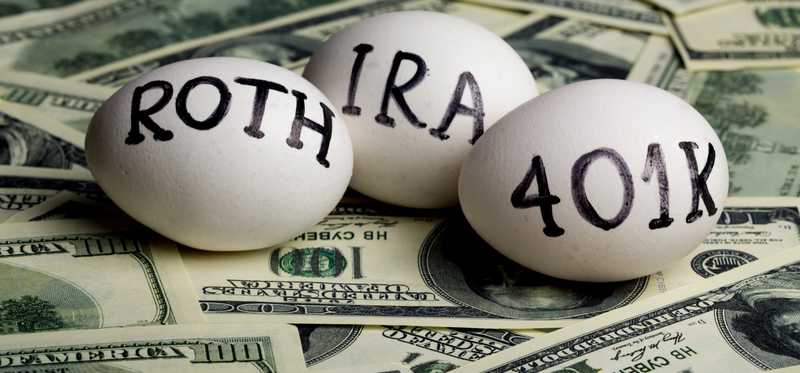15 401(k) Mistakes You Didn't Know You Were Making

15 401(k) Mistakes You Didn't Know You Were Making
These are costly blunders
You have a limited number of years until you retire -- a limited number of years in which you can save and invest for retirement. Try to make as few blunders as possible, so that you can amass a sizable nest egg that can help support you in your nonworking years, because Social Security isn't likely to be enough. Financial blunders can be surprisingly costly, so learn about these 401(k) mistakes you'll want to avoid making.
5 Winning Stocks Under $49
We hear it over and over from investors, “I wish I had bought Amazon or Netflix when they were first recommended by the Motley Fool. I’d be sitting on a gold mine!” And it’s true. And while Amazon and Netflix have had a good run, we think these 5 other stocks are screaming buys. And you can buy them now for less than $49 a share! Simply click here to learn how to get your copy of “5 Growth Stocks Under $49” for FREE for a limited time only.
Previous
Next

1. Not understanding what a 401(k) plan is -- and what it can do
Many people hardly know what a 401(k) account is, and that's not surprising, since most of us learn relatively little about money management and financial planning in life. A 401(k) account is a retirement saving plan offered by many employers that gives you tax breaks while helping you accumulate wealth. It can be very powerful: If, for example, you sock away $15,000 in your 401(k) annually for 25 years, and you earn an average annual return of, say, 8%, you can end up with an account valued near $1.2 million!
ALSO READ: 5 Ways to Squeeze Every Last Penny Out of Your 401(k) Plan
Previous
Next

2. Not participating in your 401(k) plan
The first mistake many people make regarding 401(k) plans is simply not participating in them. It used to be a high percentage of workers, but in recent years more people have been participating in 401(k) plans -- in part due to more employers automatically enrolling workers in them. Recent Fidelity research shows an overall average participation rate in the many plans it administers of about 84%.
Previous
Next

3. Not evaluating your 401(k) plan
It's great to make the most of your 401(k) plan, but know that they're not all the same. They can vary widely in the kinds of assets you're allowed to invest your money in, the generosity of employer matching funds, the length of the vesting period before you can take possession of matching funds, and the fees charged, among other things. It's worth taking a moment to see how good your company's 401(k) plan is. If it looks good or at least average, consider making use of it. If it's poor, let your benefits department know that you're disappointed and consider doing much of your retirement saving elsewhere.
Previous
Next

4. Not grabbing all available matching dollars
One aspect of most 401(k) plans is that they offer matching dollars from your employer. Employers won't generally match every dollar you sock away, but many are ready to add several thousand dollars annually to your account. A typical matching formula is 50% of your contributions, up to 6% of your salary. So if you earn $100,000 and sock away $6,000, your employer will kick in an additional $3,000. If you sock away $10,000, your employer will kick in the same $3,000 -- remember that it's capped in this example at 6% of your salary.
ALSO READ: 5 Simple Ways to Boost Your Retirement Savings in the Next Week
Previous
Next

5. Not paying attention to vesting
A 401(k) mistake that's very easy to make is to not pay attention to your plan's vesting schedule. While some employers consider matching funds your property as soon as they're paid, many others employ vesting schedules, with full employee ownership of matching funds happening gradually over time. (Some employ "cliff" vesting, having the full amount vest at some point in the future.) So, for example, if your plan vests over three years, you'll take ownership of a third of matching funds received every year for three years. Some schedules drag it out considerably longer. The system is designed to keep workers from leaving, and every year when you receive new matching dollars, the vesting schedule starts anew for those dollars. Know what your plan's terms are -- and if you're planning on changing jobs, consider whether it's worth sticking around a bit longer.
5 Winning Stocks Under $49
We hear it over and over from investors, “I wish I had bought Amazon or Netflix when they were first recommended by the Motley Fool. I’d be sitting on a gold mine!” And it’s true. And while Amazon and Netflix have had a good run, we think these 5 other stocks are screaming buys. And you can buy them now for less than $49 a share! Simply click here to learn how to get your copy of “5 Growth Stocks Under $49” for FREE for a limited time only.
Previous
Next

6. Not making noise if your 401(k) plan is a poor one
If your employer's 401(k) plan has a lengthy vesting schedule, such as a six-year one, you might want to let the benefits manager know that you're disappointed in it and would love it if the company reconsidered. Similarly, if the plan falls short in other ways, such as by offering no matching funds, or a meager match, let your displeasure be known -- and perhaps inspire colleagues to do the same. If enough workers are unhappy about it, there's a chance the plan might be improved.
Previous
Next

7. Not contributing enough to your 401(k)
Another big mistake is not saving aggressively enough for retirement -- and contributing too little to your 401(k) account. While IRAs limit your total contributions for 2021 to $6,000 (plus an additional $1,000 for those 50 and older), the 2021 limit for 401(k) contributions is $19,500, plus $6,500 for those 50 and older. That's a huge difference. One rule of thumb is to sock away 10% of your income each year, but for many people, that won't be enough -- especially if they were late starting to save and invest. It can help to try to arrive at an estimate of how much you'll need by retirement.
ALSO READ: How to Manage Your 401(k) Without Lifting a Finger
Previous
Next

8. Staying with default investments
Another 401(k) mistake many make without realizing it is sticking with default investments. Your employer can't know what the best investments are for you, because it doesn't know your retirement plans, your risk tolerance, and other factors. So to be on the safe side, 401(k) plans will typically plunk everyone in fairly conservative investments and let them switch to other investments. Take some time to see how exactly your 401(k) money is being invested, and make any changes you want. If you have decades until you retire, having most or all of your money in stocks can be a good move. If you've been plunked in some high-fee funds, see if there are any good alternatives with lower fees.
Previous
Next

9. Not considering the Roth 401(k)
You may know about traditional and Roth IRAs, but you may not realize that many employers now offer traditional and Roth 401(k) plans -- and the Roth plan is worth considering. As with IRAs, a Roth 401(k) gives you no up-front tax break, but if you play by the rules, you can withdraw money from the account in retirement tax-free -- which can be a very big deal. If, for example, you've amassed $500,000 in your account when you retire, all that money will be available to you in retirement, with nothing taken out for taxes.
Previous
Next

10. Not keeping up with your investments
Once you're all set up and contributing regularly to your 401(k) account, don't assume you can just forget about it. You certainly don't need to fuss over it frequently, but do check in perhaps once or twice a year, at least, to make sure your investments are performing reasonably. Your employer may have changed investment choices, too, meaning that your money might have been moved into a different fund or two. Keep up with your account and its growth -- because that money will be very important and useful to you in the future.
5 Winning Stocks Under $49
We hear it over and over from investors, “I wish I had bought Amazon or Netflix when they were first recommended by the Motley Fool. I’d be sitting on a gold mine!” And it’s true. And while Amazon and Netflix have had a good run, we think these 5 other stocks are screaming buys. And you can buy them now for less than $49 a share! Simply click here to learn how to get your copy of “5 Growth Stocks Under $49” for FREE for a limited time only.
Previous
Next

11. Borrowing from your 401(k)
While you're often allowed to borrow from your 401(k) account, it's best not to, unless you have no other reasonable option. If you borrow, say, $30,000 from your account, intending to pay it back within five years, that money will not be growing for you for those five years. At an average annual growth rate of 8%, it could have ended up worth $44,000 or so -- so borrowing it means you lose $14,000. Worse, many people who borrow end up not repaying the loan, so they end up facing early withdrawal penalties and taxes.
ALSO READ: Can You Retire a Millionaire Using Only a 401(k)?
Previous
Next

12. Cashing out your account
These days few of us stay with the same employer for decades. Instead, we often change jobs every few years. When doing so, it's easy to assume that there's no harm in cashing out your 401(k) account, as it may have a seemingly small sum in it. Lots of people cash out when changing jobs -- but that can be disastrous for their financial futures, because all those seemingly small sums could have kept growing and growing. When you change jobs, look into rolling your 401(k) over into an IRA, or perhaps moving it into your new employer's 401(k) plan.
Previous
Next

13. Relying only on your 401(k) for retirement
While 401(k) accounts can be powerful wealth-building tools, they're not necessarily all you need when saving for retirement. Be sure to consider all your options, and perhaps make use of multiple kinds of saving and investing accounts. IRAs, for example, let you invest in a much wider array of investments -- such as just about any stock and most mutual funds. Health savings accounts (HSAs) let you put aside meaningful sums to be spent tax-free on qualifying healthcare expenses -- but after age 65, the money in them can be spent on anything. Each kind of retirement account has its own terms, and its own pros and cons.
Previous
Next

14. Not having an overall retirement plan
Your 401(k) should be part of your overall retirement plan -- one that has an ultimate goal in the amount you think you'll need to retire with, along with mileposts you'll want to hit, on schedule. Take some time to come up with the best plan for yourself, and consider hiring a financial planner or advisor to weigh in and help, too, as this is such important stuff.
ALSO READ: Are You Making These 3 Retirement Investing Mistakes Right Now?
Previous
Next

15. Not sticking with your plan
Finally, a common blunder, and perhaps the costliest, is not sticking with the plan you made. You may, for example, plan to increase your contribution rate to your 401(k) every year, taking it from 10% of your salary to 15% over five years -- but if you forget or procrastinate, you may end up staying at the 10% rate longer than necessary, leaving lots of future dollars on the table.
5 Winning Stocks Under $49
We hear it over and over from investors, “I wish I had bought Amazon or Netflix when they were first recommended by the Motley Fool. I’d be sitting on a gold mine!” And it’s true. And while Amazon and Netflix have had a good run, we think these 5 other stocks are screaming buys. And you can buy them now for less than $49 a share! Simply click here to learn how to get your copy of “5 Growth Stocks Under $49” for FREE for a limited time only.
Previous
Next

Your financial future is in your control
Don't leave your future financial security up to chance, because that could result in a lot of struggling in your post-work years. Execute a good plan, perhaps by making the most of 401(k) accounts, among other things, and you can build yourself a very comfortable future.
The Motley Fool has a disclosure policy.
Previous
Next
Invest Smarter with The Motley Fool
Join Over Half a Million Premium Members Receiving…
- New Stock Picks Each Month
- Detailed Analysis of Companies
- Model Portfolios
- Live Streaming During Market Hours
- And Much More
READ MORE
HOW THE MOTLEY FOOL CAN HELP YOU
-
Premium Investing Guidance
Market beating stocks from our award-winning service
-
The Daily Upside Newsletter
Investment news and high-quality insights delivered straight to your inbox
-
Get Started Investing
You can do it. Successful investing in just a few steps
-
Win at Retirement
Secrets and strategies for the post-work life you want.
-
Find a Broker
Find the right brokerage account for you.
-
Listen to our Podcasts
Hear our experts take on stocks, the market, and how to invest.
Premium Investing Services
Invest better with The Motley Fool. Get stock recommendations, portfolio guidance, and more from The Motley Fool's premium services.